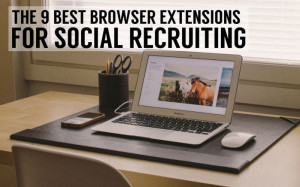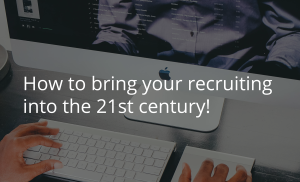
Reference Checks...Traditional or 2.0?
With all of the creative advancements in social media, hiring managers may be tempted to also use online networking sites for candidate references. The art of communication has taken a drastic turn, with peoples’ busy schedules resulting in more emails and fewer phone calls. Naturally, this affects all areas of the business world, including reference checks. But is using social media to find out information about a candidate’s background a good idea? Legalities aside, let’s look at some of the more practical pros and cons.
Pros
Unbiased information. The best feature of using social media to access references is the potential for reaching former colleagues and superiors not provided on a candidates’ submitted reference list. Naturally, candidates will provide a list of individuals who will speak highly of them and this may provide an inaccurate or incomplete picture of the individual’s competencies. By finding former colleagues on LinkedIn, hiring managers can easily find individuals who can provide a 360 degree perspective on the candidate.
Fast and easy. For busy professionals, it can often be hard to complete references on potential candidates. This is especially true for non-HR line managers who are also responsible for their functional areas. By providing potential references a standard list of questions for written reply, hiring managers can easily compile and benchmark candidates against one another.
High response rate. Just as the reference checker may be short on time, the reference giver may also be challenged to find the time in their day for a formal phone reference. Providing a written statement may be easier to coordinate as individuals can provide information when the time suits them best.
Cons
Inability of references to comment. With many organizations limiting what information employees can offer, it is likely that many of the individuals you target for references won’t be able to provide comment on the candidate. While this may also occur during a reference conducted by phone, there is a higher likelihood of finding the individual who can speak on behalf of the organization, saving you time in the long run.
Incomplete information. When receiving a written statement about a candidate, often the information is incomplete and does not offer a adequate perspective on the individual. Once the reference is submitted, it is often challenging to get an individual to elaborate.
Breach of confidentiality. For candidates who are currently employed and performing a confidential job search, approaching individuals without the candidate’s consent can put the individual in a difficult situation with their current employer. It is also possible to approach an individual who did not witness first hand an individuals’ performance.
Lack of personal contact. As with other online communications, the demise of the personal phone call means that the small intonations and tone of voice are not prevalent on the online reference. Often it is important to hear these vocal variances and prod deeper to get the full story on a candidate. By removing this personal, vocal contact, a candidate reference may be incomplete.
While social communities have changed the way we source, connect and recruit candidates, we eventually have to take the relationship offline as, generally speaking, the individual will be working alongside us. It may be wise then to also conduct the reference check the good old-fashioned way, over the phone. Hiring can be a costly activity if not done correctly, so are you prepared to take that risk?





